Origins of American Government by Alicen Hoy (i have read the book a hundred times txt) 📖
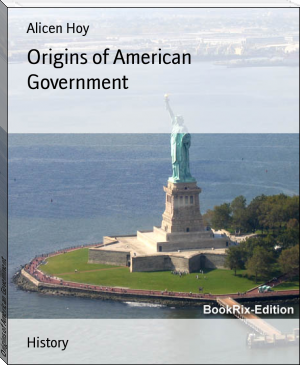
- Author: Alicen Hoy
Book online «Origins of American Government by Alicen Hoy (i have read the book a hundred times txt) 📖». Author Alicen Hoy

Settlement of North America by Great Britain began in the mid-sixteenth century. As new settlers journeyed to the "New World" they brought their own customs, politics and culture. England’s influence in North America became very powerful and the new colonists started the building blocks that shaped our government of today.
Major foundations of our government can be traced back to several English documents. The Magna Carta(1215)was signed by King John and guaranteed the rights of trial by jury and due process. It also established that a ruler does not have absolute power. The Petition of Right (1628) limited the power of the king and ensured that the government was above the law.

Therefore, the king could no longer punish or imprison any person without trial, impose military rule in time of peace, require homeowners to shelter troops, or require people to pay taxes without consent of Parliament.
Each of these document formed the basis of American government today! Because of these documents, our Constitution includes many different points. Within the United States citizens have the right to a fair and speedy trial, the right to not house troops, freedom from excessive bail, freedom from cruel and unusual punishment as well as many other points.

As more people colonized America, many colonists tried to create unity among themselves to fight the control that was occurring in England as well as threats within the colonies themselves. The New England Confederation was formed among northern colonies to gain protection against Native American tribes.
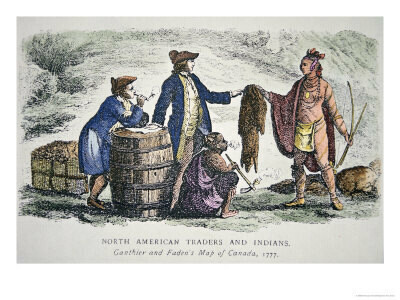
One of the major concerns of the new colonies was safe trading environments. The Albany Plan was a meeting of seven colonies to discuss safe trading situations. As the years continued on, violent events began to take place within the colonies in response to actions taken by Britain. The Boston Tea Party, the Stamp Act, and reactions to things such as the Intolerable Acts all showed Britain that the colonists wanted to break away and create their own nation.
On September 5, 1774 the First Continental Congress met in Philadelphia for almost 2 months. The delegates that attended sent a Declaration of Rights to the king in protest of Britain’s colonial policies. Delegates also urged colonists to refuse all trade with the British. When Britain received the Declaration, they refused to compromise and imposed even more strict and repressive measures.
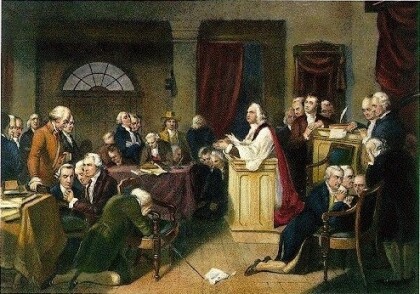
The delegates called a meeting of the Second Continental Congress on May 10, 1775. When Great Britain found out about the meeting, they condemned the delegates as traitors. Shortly after Britain sent troops to restore order and the beginning battles of the Revolutionary War had begun. By July of 1776, the Declaration of Independence was sent to the ruling power of Britain and our first form of government was formed through the Articles of Confederation on March 1, 1781.
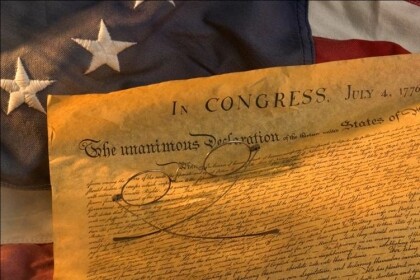

By 1785 errors within the Articles were very clear and there was a movement for a stronger, more effective national government. February of 1787 brought about a meeting of the states in Philadelphia for the Constitutional Convention in order to revise the existing Articles of Confederation. The meeting evolved into a time to create an
entirely new kind of government - one that would derive its power from the Constitution.
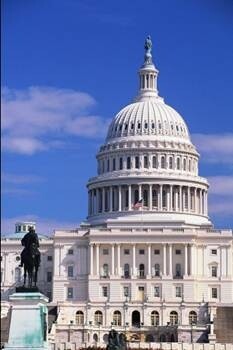
On September 17, 1787 the newly created Constitution was approved and signed by 39 delegates. Some States ratified the Constitution quickly while others struggled to do so. On June 21, 1788 New Hampshire became the 9th state to ratify the Constitution with Virgina and New York in tow after fierce battles in each state.
References Used
Information:
McClenaghan, W. C. (2010). Macgruders American Governmemt
. Pearson Prentice Hall. Boston, Massachusetts.
Images:
www.images.google.com
Publication Date: 11-10-2012
All Rights Reserved





Comments (0)